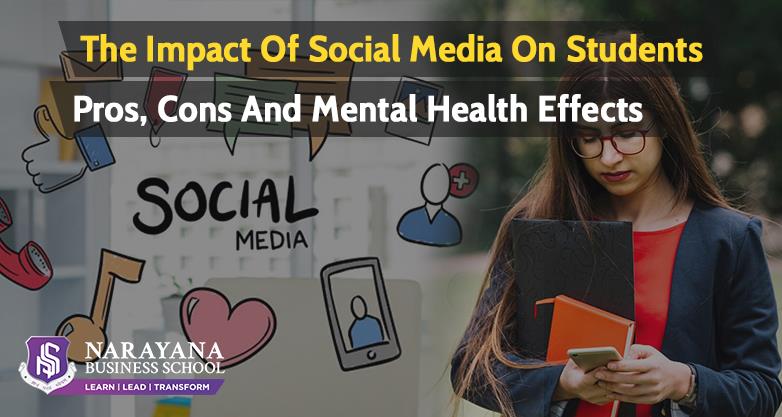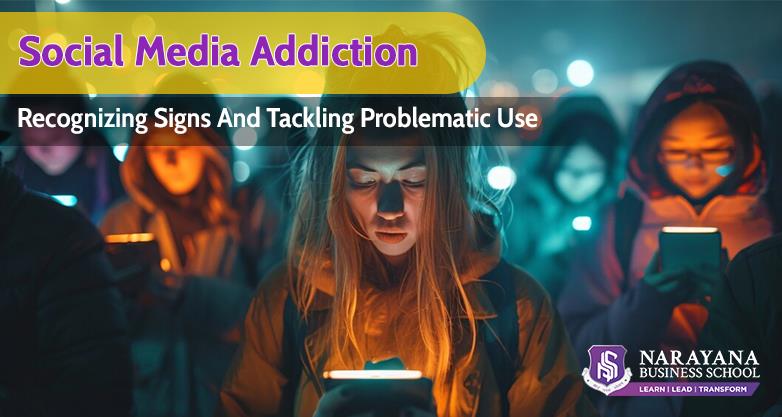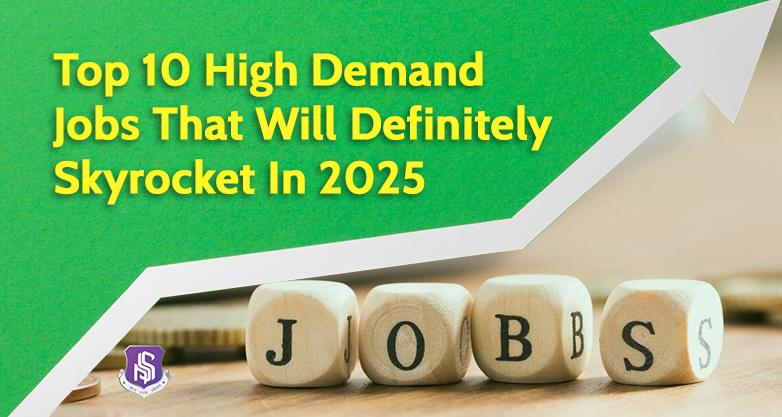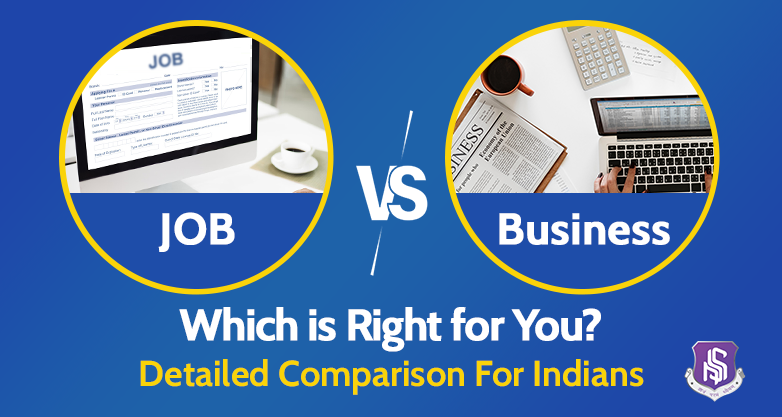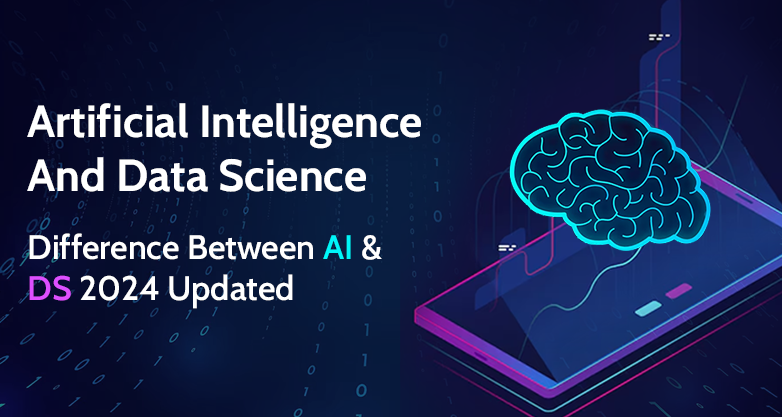You know what’s of greater importance than water right now? SOCIAL MEDIA! It has become an important aspect of modern life, particularly among students. Platforms such as Instagram, Snapchat, and Facebook are the reasons for the impact of social media on students life dominating students’ perspectives and highlight the complex influence of social media on them.
It is not all terrible; it may benefit in a variety of ways, but, having too much of anything is harmful.
Here is all about the pros and cons of internet usage our team compiled, the impact of social media on mental health, influence on students’ lives, and discusses both the negative and positive impacts of social media on youth. Keep reading to know the advantages and disadvantages of social media for students.
Pros Of Social Media
Access to Information:
The internet offers students several options for study and learning. They have access to instructional resources, online courses, and tutorials that will help them better comprehend a variety of topics.
Connectivity:
Social media enables students to keep in touch with their friends and family, promoting communication across geographical boundaries. This connectedness is critical for maintaining ties during life transitions such as going away to college.
Creative Expression:
Platforms like Instagram and TikTok enable students to express themselves creatively through art, writing, and multimedia projects.
Cons Of Social Media
Distraction:
The appeal of social media might encourage procrastination. Students sometimes find themselves browsing through feeds rather than focusing on their schoolwork, which might impede academic achievement.
Misinformation:
The internet is full of unverified information. Students may fail to distinguish between reputable and questionable sources, which can have an impact on their learning results.
Addiction:
Addiction is the biggest threat from social media (not to mention – worse than cigarette addiction). Excessive use of social media can lead to addictive behaviors, where students prioritize online interactions over real-life engagement.
Impact Of Social Media On Mental Health Of Students
The correlation between social media use and mental health is complicated. While it can promote relationships, it also has hazards that might harm kids’ psychological well-being.

Increased Anxiety and Depression
According to research, youngsters who use social media often have higher levels of anxiety and sadness. The urge to present an idealized online identity can cause feelings of inadequacy. According to one research, 41% of teenagers who use social media often report having bad mental health. Continuous comparison to manicured lifestyles might worsen feelings of loneliness and low self-esteem.
Cyberbullying
Cyberbullying is another major issue related to social media use. Anonymity online can encourage people to engage in hazardous actions that they would not do in person. Victims frequently feel great emotional anguish, which leads to long-term psychiatric problems. The ubiquitous nature of cyberbullying makes it impossible for victims to avoid harassment, which has a negative impact on their mental health.
Fear Of Missing Out (FOMO)
Social media fosters a culture where users constantly see what others are doing, leading to FOMO. This phenomenon can create feelings of exclusion and anxiety among students who feel they are missing out on experiences shared by their peers.
Positive Impact Of Social Media On Students

Social media significantly influences various aspects of students’ lives beyond academics. The arrival of AI in education has brought about certain nuances but its important to observe both sides of the coin.
Social Interactions
While social media helps people connect with friends and family, it may also lead to superficial relationships. Students may choose online interactions over face-to-face conversation, which is critical for building interpersonal skills. If offline contacts are neglected, this transition might lead to feelings of loneliness.
Academic Performance
The distraction produced by social media might interfere with academic obligations. Students may struggle to concentrate during study sessions or finish projects owing to the frequent influx of messages and updates from their social media sites. As a result of this distraction, students may receive poorer marks and perform poorly academically.
Negative Impact Of Social Media On Students
Despite some positive aspects, the negative impacts are profound and warrant serious consideration.
Addiction
Social media addiction is becoming a major worry among teenagers. Many people indicate that they spend too much time online, which interferes with their schoolwork, physical health, and interpersonal connections. This addiction might have a negative impact on pupils’ general well-being since they overlook important activities like exercise and sleep.
Body Image Issues
Social media frequently promotes unrealistic beauty standards via altered photos and influencer culture. This exposure can lead to body dissatisfaction among students, particularly young women who may feel compelled to adhere to these standards. The accompanying body image difficulties may lead to eating disorders and other mental health problems.
Sleep Disruption
Screens generate blue light that interferes with sleep habits. Many students report staying up late on social media, resulting in insufficient sleep, which is necessary for cognitive performance and general wellness. Poor sleep quality has been related to worse academic performance and higher stress levels.
Positive Impact Of Social Media On Youth Essay

Networking Opportunities
Social media platforms provide valuable networking opportunities for students seeking internships, jobs or business. Connecting with professionals in their fields can open doors that might not be accessible through traditional means.
Educational Resources
Many educational institutions leverage social media as a tool for learning. Students can follow educational accounts that share informative content related to their studies or interests. This access helps diversify learning methods beyond textbooks.
Community Building
Social media facilitates community building among students with shared interests or experiences. Whether through study groups or support networks for mental health issues, these communities provide essential support systems that enhance student life.
Major Impact Of Social Media On Education
Enhanced Communication
Social media improves communication between teachers and students. It enables speedy transmission of information about assignments or activities, resulting in a more engaged classroom atmosphere. Furthermore, sites such as Twitter spaces and Facebook groups facilitate collaborative learning experiences outside of typical classroom settings.
Learning Distractions
While social media may help with communication, it can also be a distraction in class. Students may be tempted to check alerts or participate in non-study-related talks during class time. This conduct has the potential to impair both their own and their peers’ learning processes.
Changes In Learning Styles
As digital natives, youngsters of today frequently prefer visual content over traditional reading sources. Educators are adjusting by adding multimedia resources into their teaching techniques; however, this transition must be carefully considered to ensure that critical thinking abilities are not harmed as a result of decreased attention spans caused by quick information consumption online.
Research Findings on Social Media’s Impact on Academic Performance
Frequency of Use:
Research indicates that students who spend more time on social media tend to have lower GPAs compared to those who use these platforms less frequently. For instance, one study found that typical Facebook users had GPAs ranging from 3.0 to 3.5, while non-users had GPAs between 3.5 and 4.02. This suggests a clear correlation between time spent on social media and academic achievement.
Multitasking Effects:
Students who multitask between studying and using social media often see a decline in their academic performance. A study indicated that multitasking could lead to up to a 20% decrease in grades compared to those who focus solely on their studies without digital distractions.
Usage Patterns:
The context in which social media is used also plays a role in its impact on academic performance. Students who use social media primarily for academic purposes tend to report better academic outcomes than those who use it for entertainment.
How Do Parents’ Communication Styles Affect Students’ Social Media Use and Grades?
Parenting Styles and Their Characteristics
Authoritative Parenting:
This style is distinguished by great reactivity and demands. Authoritarian parents provide clear expectations while promoting open communication. They prefer to encourage their children’s independence, which can lead to better social media habits since youngsters feel empowered to make appropriate decisions.
Students reared by authoritative parents are more likely to use social media productively. They are more likely to participate in educational activities online and use social media for academic cooperation. According to studies, this strategy corresponds with greater academic enthusiasm and accomplishment because of the balanced approach of supervision and freedom.
Authoritarian Parenting:
Authoritarian parents set tight standards and expectations with little space for discussion. This strategy may lead to disobedience or clandestine conduct about social media use, perhaps resulting in poor academic achievements owing to a lack of trust and open communication.
Students with authoritarian parents, on the other hand, may have limited access to social media, perhaps resulting in confrontations. This limitation can breed resentment or clandestine conduct, with kids engaging in social media use without parental supervision, frequently leading to interruptions from their schoolwork. According to research, such surroundings might have a detrimental influence on academic achievement since they raise stress and impair motivation.
Permissive Parenting:
Permissive parents are tolerant and often establish clear boundaries. While this might lead to greater flexibility in social media use, it can also result in a lack of discipline, which can impair students’ ability to manage their time efficiently for studying.
Students with liberal parents frequently have more latitude when it comes to social media use. While this can improve their online social contacts, it may also result in excessive screen time that interferes with academic duties. A lack of structure can lead to poor time management skills, lowering grades.
Conclusion: Impact Of Social Media On Students Influences Both Positive And Negative Aspects
Social media has a varied impact on students, influencing both positive and bad aspects of their academic achievement, mental health, and personal life. While technology allows for connection and learning, it also offers new difficulties such as addiction, cyberbullying, and diversions, all of which must be addressed proactively.
To maximize the advantages while limiting the risks, we at NBS suggest that educators and parents should encourage kids to use technology responsibly. Setting boundaries for screen time and encouraging good online habits will be critical in navigating the intricacies of social media in today’s educational world. Understanding these relationships will remain critical in helping future generations’ well-being and success as society and technology advance.




